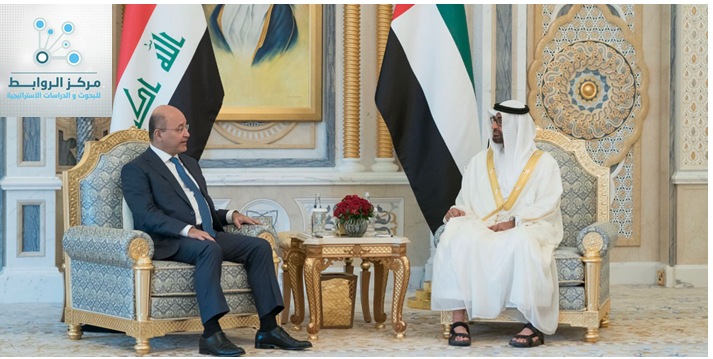After the visit by Iraqi President Barham Salih to Gulf Arab countries and the Hashemite Kingdom of Jordan, he also visited Iran in his first foreign tour since taking office last October. Iraqi President Barham Saleh met with his Iranian counterpart Hassan Rouhani in Tehran. The two sides discussed bilateral relations and the latest developments in the local and regional arena, focusing on the economic and trade relations between the two countries. He also met with Ali Khamenei, leader of the Iranian revolution.
According to observers for the Iraqi issue, they expect that the file of the US sanctions imposed on Iran will be a major item in the talks between the Iranian and Iraqi presidents. Baghdad is concerned about those sanctions that will have economic consequences if it is committed to them, and will not be free of political problems due to the strong ties between Iraq and Iran, and the keenness of the Iraqi ruling class to preserve them. In a joint press conference with Rouhani, Saleh called for a regional system of cooperation among the peoples of the region; expressing the hope that Iraq would become a field for
Convergence between the countries of the region rather than a battlefield. “We are determined to turn Iraq into a strong country and we hope to take advantage of Iran’s potential for the reconstruction of our country,” Barham Saleh said. “Iran has played a major role in fighting terrorism in Iraq,” he said. “After the defeat of ISIS in Iraq, we stand ready for two requirements namely the reconstruction and political stability, we do not want our country to be a battleground for rival forces, he added.”
The president of the Republic of Iraq, Barham Salih, expressed this concern, refusing to accept that his country to bear the consequences of these sanctions. Iraqi President Barham Salih called on the United States to take into account his country’s political and economic status at a time when the two countries are negotiating to exempt Baghdad from sanctions in which Washington has imposed on Iran. Saleh told reporters during a visit to Kuwait: “We are in an ongoing dialogue with Washington, and must take into account the privacy of Iraq on the Iranian sanctions … We do not want Iraq to be burdened with the consequences of US sanctions on Tehran.” “We want to maintain balanced relations with our neighbors and with the international community,” he said. The Iraqi president stressed that Iran is a neighboring country, and that the interest of his country lies in good and stable relations with it, pointing out that the Iraqi people also want to deepen Arab and Gulf relations.
Iraqi President Barham Salih is keen to promote the idea of balancing Iraq’s relations with regional neighbors. Although the Iraqi president has no executive powers, according to the new constitution, which was approved following the US occupation of Iraq in 2003, But the visits by Iraqi President Barham Salih to the neighboring countries were considered by observers as an attempt to “break the previous stereotype that was followed by all those who took office since 2003 and until now, namely Ghazi al-Yawar, JalalTalabani for two terms and Fuad Masoum, in that they are ineffective leaders at the external level, with limited presence internally, confined to some celebrations, conferences and ceremonies of honor. ” Observers believe that the visit of Iraqi Barham Saleh to the neighboring countries is important in such circumstances, even if it did not lead to anything, it will establish a positive situation in Iraqi relations with those countries.
The visit of the Iraqi president to his Arab and regional neighbors confirms his political convictions : “Iraq seeks to build the best relations with its Arab and Gulf depth and to cooperate with its brothers in establishing good neighborliness, economic integration and joint cultural advancement, it also brings together strong ties between Iraq and Islamic Republic we aspire to develop them and strengthen their foundations to serve as an example of cooperation for the development and stability of the region. The distinguished relations between Iraq and Turkey also have open horizons for development, which enhances the chances of lasting peace that the region and its peoples deserve. It is a peace that will not remain a mere promise to the entire region, if complete security stability is achieved in the federal democratic Iraq and in Syria, a sincere national understanding between the Syrian brethren, and the preservation of the peace of Syria and the security of its people and Yemen, and to put an end to the suffering of its people and establish elements of its peace and rights of its people.
Peace will not only remain a dream if we succeed together, through regional and international cooperation, in creating a positive and constructive atmosphere of dialogue that will extinguish the fire under the ashes of differences and work in Iraq, with the Iraqi role being a catalyst in all of this wherever a positive role is required from it based on the fact that our region can achieve by peace and cooperation the achievements for our peoples far more than differences may achieve.
Iraqi Studies Unit
Rawabet Center for Research and Strategic Studies

